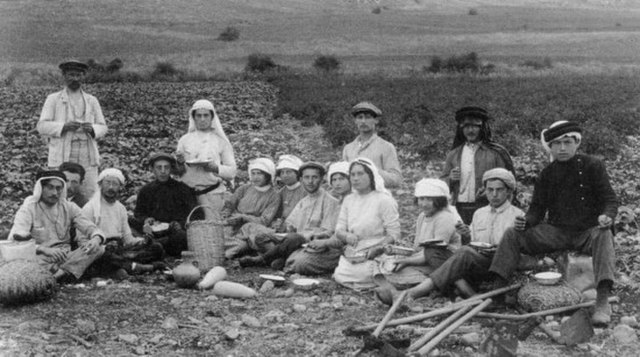Collaboration is the process of two or more people, entities or organizations working together to complete a task or achieve a goal. Collaboration is similar to cooperation. Most collaboration requires leadership, although the form of leadership can be social within a decentralized and egalitarian group. Teams that work collaboratively often access greater resources, recognition and rewards when facing competition for finite resources.
Catalan castellers collaborate, working together with a shared goal.
Organization and cooperation between community members provides economic and social benefits.
The 2,751 Liberty ships built in four years by the United States during World War II required new approaches in organization and manufacturing.
The Evergreen signature clock tower
Cooperation takes place when a group of organisms works or acts together for a collective benefit to the group as opposed to working in competition for selfish individual benefit. In biology, many animal and plant species cooperate both with other members of their own species and with members of other species with whom they have relationships.
Many animal species cooperate with each other in mutual symbiosis. One example is the ocellaris clownfish, which dwells among the tentacles of Ritteri sea anemones. The anemones provide the clownfish with protection from their predators (which cannot tolerate the stings of the sea anemone's tentacles), while the fish defend the anemones against butterflyfish (which eat anemones)





